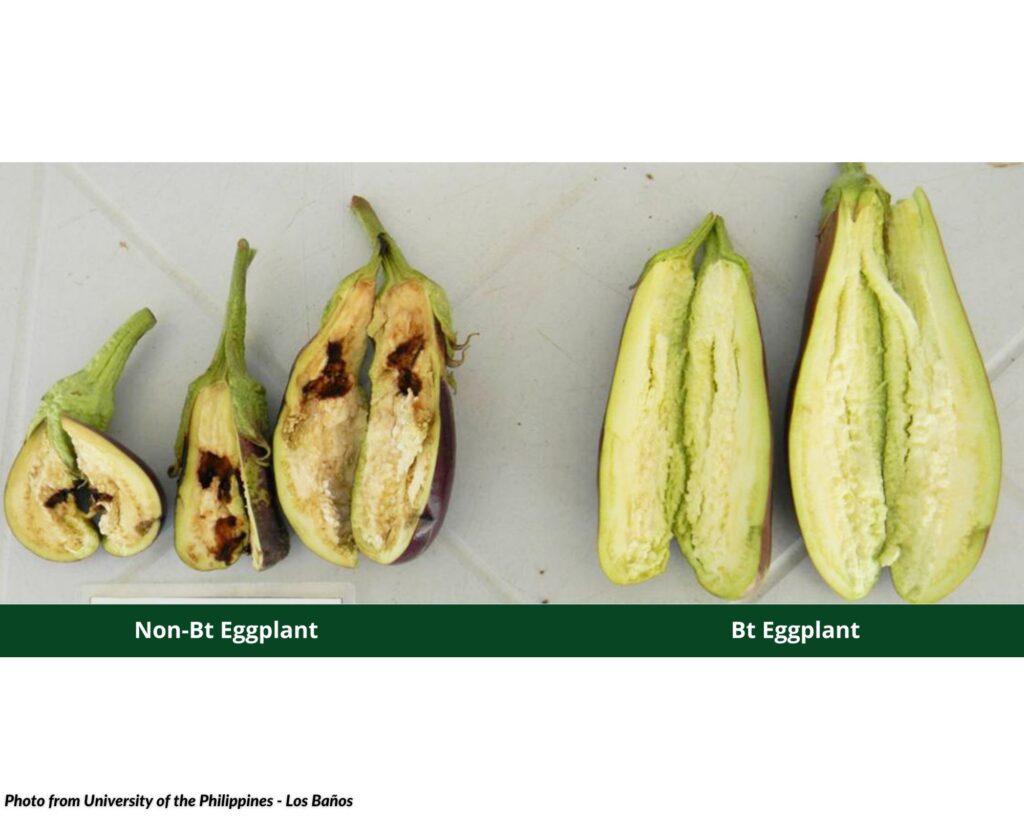
Photo from University of the Philippines – Los Baños
The following post does not create a lawyer-client relationship between Alburo Alburo and Associates Law Offices (or any of its lawyers) and the reader. It is still best for you to engage the services of a lawyer or you may directly contact and consult Alburo Alburo and Associates Law Offices to address your specific legal concerns, if there is any.
Also, the matters contained in the following were written in accordance with the law, rules, and jurisprudence prevailing at the time of writing and posting, and do not include any future developments on the subject matter under discussion.
AT A GLANCE:
Every last week of November of every year is “National Biotechnology Week”. (Proclamation No. 1414, s. 2007)
Biotechnology is recognized for sustaining increased crop yields, enhancing farm productivity, and improving the quality, value, and suitability of crops for various uses in modern agriculture. Thus, the government aims to promote the safe and responsible use of modern biotechnology to achieve and sustain food security, equitable access to health services, a sustainable and safe environment, and industry development.
By addressing challenges such as crop diseases, pests, and environmental stress, biotechnology contributes to global food security. It helps ensure a stable and sufficient food supply to meet the nutritional needs of a growing world population.
The law says:
“WHEREAS, it is the policy of Government to promote safe and responsible use of modern biotechnology and its products as one of the several means to achieve and sustain food security, equitable access to health services, sustainable and safe environment, and industry development;
WHEREAS, biotechnology sustains increased crop yields and farm productivity, and enhances the quality, value, and suitability of crops for food and other uses that are complementary to modern agriculture;
WHEREAS, biotechnology is behind many breakthroughs in human health care that have benefited millions of people through the development of vaccines, antibiotics, and other drugs that cannot be made in any other way;
WHEREAS, biotechnology has delivered benefits to our environment including protection of water quality, conservation of topsoil, improvement of waste management techniques, reduction of chemical pesticide usage, production of renewable energy and biotechnology-based products, and cleaner manufacturing processes;
WHEREAS, there are already biotechnology-based industries in the country that would benefit from the week-long advocacy campaign through recognition of their significant public contribution;
WHEREAS, biotechnology has been helping in the speedy and fair administration of justice through forensic DNA analysis and similar DNA technologies;
WHEREAS, biotechnology increases the pace of technology development for medical, agricultural, industrial, and environmental applications;
WHEREAS, public awareness, education, and understanding of biotechnology is essential for the responsible application and regulation of this new technology; and
WHEREAS, biotechnology, celebrates globally more than a decade of achievements in research and development and its commercial applications in agriculture towards a more healthy and safe use of the products of modern technology.”
(Proclamation No. 1414, s. 2007)
The Case of BT Talong/Eggplant
BT eggplant has been genetically engineered to express a toxin derived from the bacterium Bacillus thuringiensis (BT). The BT toxin acts as an insecticide, providing resistance against certain pests that commonly affect eggplants. The introduction of this trait aims to reduce the need for chemical insecticides and enhance the overall productivity of eggplant crops.
BT eggplant is engineered to produce a protein toxic to certain insect pests, especially the fruit and shoot borer (FSB). This pest can cause significant damage to eggplant crops. By incorporating resistance to specific pests, BT eggplant may reduce the reliance on chemical pesticides, contributing to more environmentally friendly and sustainable agricultural practices.
Read also: What is Organic Agricultural Act?
Alburo Alburo and Associates Law Offices specializes in business law and labor law consulting. For inquiries regarding taxation and taxpayer’s remedies, you may reach us at info@alburolaw.com, or dial us at (02)7745-4391/0917-5772207.
All rights reserved.

